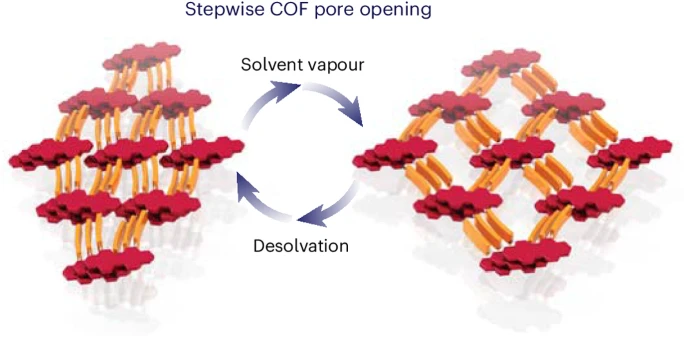EurekAlert June 17, 2024
Porous covalent organic frameworks (COFs) enable the realization of functional materials with molecular precision. Past research has typically focused on generating rigid frameworks where structural and optoelectronic properties are static. Constructing dynamic, yet crystalline and robust frameworks require a well-controlled degree of flexibility. An international team of researchers (UK, Germany, USA – Stony Brook University) has developed dynamic 2D COFs that can open and close their pores upon uptake or removal of guests while retaining their crystalline long-range order. The process requires a well-controlled degree of flexibility. They achieved this through a ‘wine rack’ design where rigid π-stacked columns of perylene diimides were interconnected by non-stacked, flexible bridges. The resulting COFs showed stepwise phase transformations between their respective contracted-pore and open-pore conformations with up to 40% increase in unit-cell volume, and the variable geometry provided a handle for introducing stimuli-responsive optoelectronic properties. According to the researchers their work provides a design strategy for dynamic 2D COFs that are potentially useful for realizing stimuli-responsive materials… read more. TECHNICAL ARTICLE

Graphical abstract. Credit: Nature Chemistry, 03 May 2024